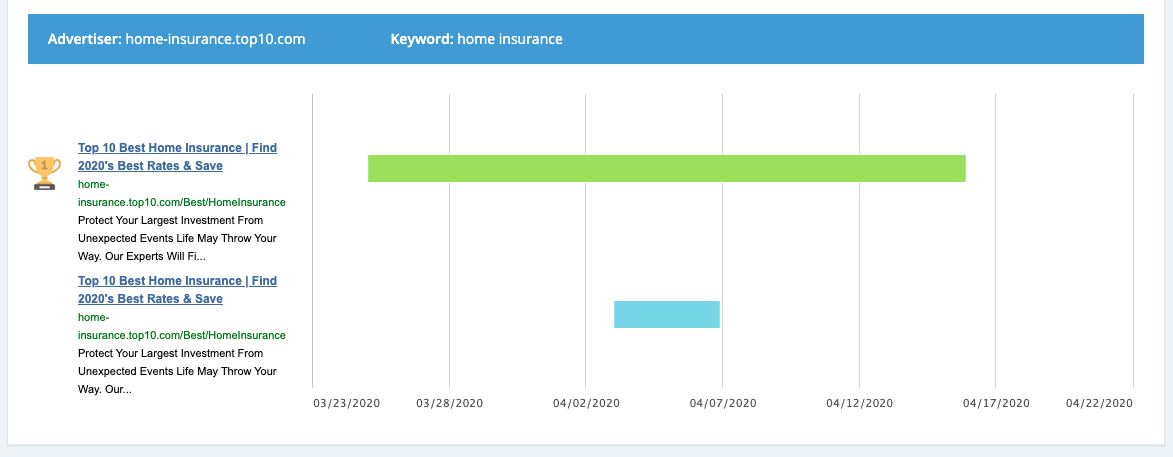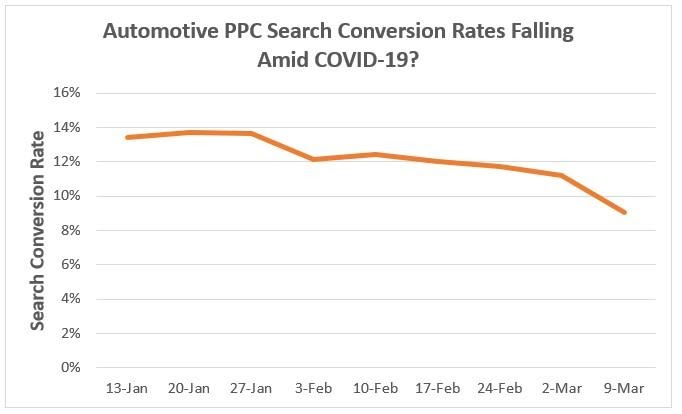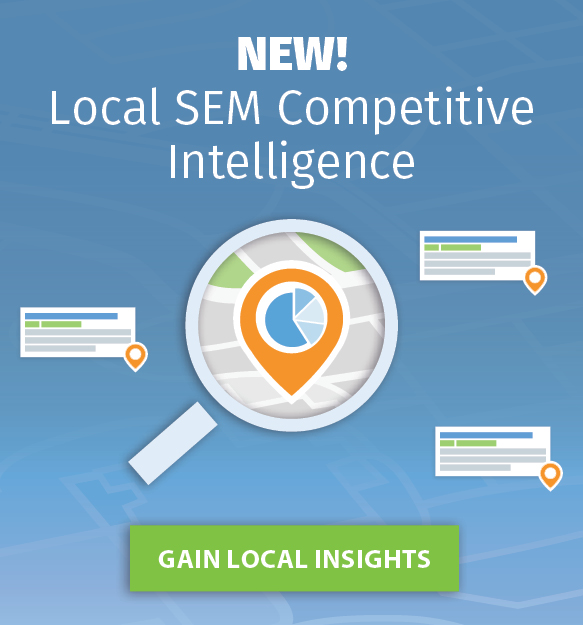
“When times are difficult, it’s vital to be human, transparent, and flexible with your clients. Take time to listen — and be truly empathetic. Then can you figure things out together and support each other as partners who are in the same boat.”
This was one point made by Alex Minchin, Founder and Managing Director of Zest Digital, in our recent conversation about how agencies can respond to a sudden economic downturn.
Alex had some really great recommendations about how advertisers can continue to get results with PPC during tough times, and he has also offered first-hand advice to agency founders who are facing client volatility.
In this article, we’ll hear from Alex about three key subjects:
- How agencies can add value and make themselves indispensable
- How agencies can communicate effectively with clients during a crisis
- How agencies can futureproof themselves in the long-term
While many things are beyond control, Alex believes that there are ways to give your agency the best possible chance of navigating choppy waters and coming through the other side stronger.

How Agencies Can Add Value and Make Themselves Indispensable
1. Use Your Team’s Skills to Help Clients in New Ways:
Zest Digital has been in business for a decade, but the COVID-19 crisis has made Alex feel more like they’re a startup again.
“When times are uncertain, you can think about how your team can use their skills to help clients in new ways — even if those ways aren’t central to your service offering,” he says.
“You have to be scrappy, because now is the time to get back in the fight. First and foremost, we’re a growth agency, so we use digital channels to drive revenue. But if we have the capability (and capacity) to help a business in other ways — such as redesigning a sales deck — this is the time to be flexible. Agencies have a lot of expertise at their disposal, and in tough times you can use it,” Alex says.
2. Act as a Business Support Partner:
“As the Managing Director of an agency, I have a wealth of commercial experience that can be useful to our clients,” Alex says. “It’s my job to support my team, but also to share as much useful information with our clients as possible. If the government launches a tax or loan initiative that will help one of our clients, I’ll make them aware of it and will guide them through the process if they need help.”
According to Alex, an agency’s senior management team is in a great position to act as a calming influence by supporting clients and advising in ways that go above and beyond delivering digital marketing services. “It’s about continuing to be a valuable part of your client’s network, and becoming a partner that supports their business in the tough times as well as the good times,” he says.
3. Provide Real-Time Competitive Landscape Updates:
With widespread disruption comes a shift in the competitive landscape. “Some competitors will pivot to new audiences and test new channels, while others will cut back and save for a rainy day,” Alex says. “Your clients will have a rough idea about who is doing what, but it’s really important to feed them real evidence. This will shine a light on new opportunities — and help them stay ahead when it matters most.”
Note: With iSpionage, you can monitor the competitive landscape on a daily basis. When you start tracking a keyword — or specific competitors — on SEM Campaign Watch, you can see whether they’ve stopped bidding entirely, whether they’ve cut back, or whether they’ve pivoted to new keywords. In one dashboard, you can see whether they’re A/B testing new ad copy and/or landing pages right now:

Our SEM Campaign Watch feature is available via paid subscription. With our 30-day money-back guarantee, you can try it without risk.
4. Help Clients Adopt an Agile Paid Marketing Strategy:
Alex told us how advertisers can adapt their PPC strategy in another recent article: How Advertisers Can Run Effective PPC Campaigns in a Crisis. Here are five of his recommendations that agencies can use:
- Adapt the conversion strategy: If an audience is more hesitant to convert, try softer low-commitment conversion goals. Provide value over time with downloadable content assets, rather than continuing to push direct-to-enquiry if an audience’s buying readiness has dropped.
- Shift budget to new keywords: For example, shift budget from “coffee near me” to “coffee delivery near me” to take advantage of new customer behavior — even if temporary.
- Double down on brand terms: Brand-related keyword terms have higher conversion potential, because the searchers are already aware of your brand and are more likely to be in the consideration phase of their buyer journey. Therefore, these campaigns should be maintained.
- Give extra clarity on ads and landing pages: In times of this much uncertainty, people want more clarity on opening times, delivery periods, and contractual terms. Use your PPC ads and landing pages wisely.
- Rethink customer avatars: Consider whether the customer pain points and mindsets have fundamentally changed due to a crisis and/or economic downturn. For example, their ability to purchase might not be the same — or they might have fresh priorities that didn’t exist before.
How to Communicate Effectively with Clients During a Crisis

1. Communication Methods Matter:
“When the pressure is building, tone of voice matters more than ever,” Alex says. “This is why it’s so important to pick up the phone or arrange video calls rather than relying on email.” According to Alex, lots of nuances will get lost in writing — and the stakes are too high for that right now.
“Our account managers have been on the phone with clients every two days — just asking how things are going. This reinforces the trust that we’ve built throughout our engagement, and means that we can have deeper human-to-human conversations. These interactions are essential during a crisis,” he says.
When talking to clients, Alex has realized the most important thing is to listen carefully and learn more about their situation, rather than being driven by your own fears:
“Admittedly, our first burst of client calls were motivated by our own worries. We quickly realized that knee-jerk panic wasn’t helpful, and instead we focused on listening to our clients and really understanding what they’re going through. This continuous feedback allows us to help them more,” he says.
2. Be Transparent, Human, and Flexible:
Alex recommends that agencies be “transparent, human, and flexible in their communication with clients.” But what does this mean, exactly?
- Transparent: Show your vulnerabilities, and be honest with clients to show that you need their support, too. If your clients are having a tough time, so are you. As partners, you need to collaborate and work together to find a win-win solution wherever possible.
- Human: Be empathetic, and understand the personal challenges that individuals are going through rather than focusing on the commercial side only.
- Flexible: Remove the barriers for existing clients to keep working with you by opening up your hourly rates and relaxing your rules about minimum orders and contract lengths. Think of new ways to reduce the risk for clients if they’re struggling.
3. Be Firm When Required:
“It’s easy to say that you should always be your client’s best friend, but the reality is that you have a responsibility to clients and employees — and to creditors, too,” Alex says. “I’ve spoken to agency owners in my network who have had clients disappear, refuse to pay invoices, or not honor their notice periods.”
According to Alex, “fairness” is the key word. “This comes down to your own relationship and history with each account, but when a client goes dark and then reappears to aggressively dictate terms, agencies are right to stand firm in order to achieve a reasonable outcome for both parties,” he says.
At the same time, Alex recommends being flexible and lenient when clients are collaborative in their approach, and also to remember that pressure might cause people to react in ways that aren’t normal:
“This is where a level head will yield better outcomes. When you can rationalise the reasons why your client is reacting negatively, you can put the brakes on a conversation that threatens to escalate. Then you can find ways out of a tricky situation that are fair and acceptable to everyone involved,” he says.
How Agencies Can Futureproof Themselves in the Long-term
1. Diversify Revenue Streams & Productize Services:
“In the long-term, agencies can protect themselves by diversifying their revenue streams,” Alex says. “Agencies can gradually shift from a 100% client-based income down to 80% and 70%. Over time, they can test and integrate new sources of income for their business. This might be a software tool for your industry or your clients’ industries, or it could even be an online course.”
Alex had been planning a diversification strategy for a while before the shock of COVID-19, but the crisis instilled a new urgency to become less reliant on things outside of his control.
“It’s also worth thinking about whether you can productize part of your service offering. This increases your efficiency of delivery, but it also shortens the sales cycle,” he says.
“Cash-strapped agencies are hit again by a slower sales completion process during — and after — a crisis, because companies are hesitant to take risks and there is more competition for pitches. Therefore, having a simple-to-understand product or produce/service hybrid model will give you an edge.”
2. Pivot Your Target Market to Healthy Industries:
According to a report by Wordstream, some industries are healthier than others as a result of COVID-19. For example, searches for office supplies are up 90% — with paid search clicks up 35% and conversion rates up 41%. In contrast, the automotive industry has seen a 30% drop in average conversion rate:

Source: Wordstream: How COVID-19 Has Impacted Google Ads Results for 21 Industries
Realistically, it’s impossible for an agency that has invested years in one industry to pivot overnight and start targeting a different market. In order to effectively target a niche, you need to have established your position with case studies — and you need to have expertise and contacts in that niche.
But if you’re an agency that works with clients in a variety of different industries, there are opportunities to shift your focus and limit your prospecting to certain profitable areas of the economy.
“You’ll see the clues in your existing client base,” Alex says. “Some of your clients will be thriving while others are struggling, and this can inform your prospecting strategy. For example, IT companies are doing well because businesses need to integrate new systems for employees to work remotely.”
Note: You can use iSpionage SEM Campaign Watch to validate your theories about which industries are still busy with companies investing in paid and organic digital marketing. You can even monitor keywords on a local basis — so if your agency targets prospects in a certain city or state, you can run a set of keywords and check whether businesses in that region are actively advertising.
Our SEM Campaign Watch feature is available via paid subscription. With our 30-day money-back guarantee, you can try it without risk.
3. Focus on Systems, Processes, and the Validation of Ideas:
According to Alex, a slowdown also offers the opportunity to nail internal systems and processes, and spend more non-billable time on optimizing the operational side of an agency.
“If your agency is able to stay afloat in the face of client volatility and a reduction in new leads, this is the time to focus on your backlog,” Alex says. “Can you accelerate the actions that you’ve been putting off for a while, so you can emerge from tough times with your ducks in a row?”
And this is also the time to validate new ideas — provided they don’t pose unnecessary financial risk:
“In a way, you have less to lose in terms of reputation, because nobody will be pointing and laughing if an idea falls flat. Ironically, when you’re comfortable it can seem like testing new things might upset the apple cart. But if that apple cart is already overturned, you can be more adventurous,” Alex says.
Final Thoughts: How Agencies Can Weather the Storm
In tough times, service businesses have a rough ride. Digital marketing agencies are no exception. In Alex’s experience, agencies can weather the storm by adding value and being a business support partner — as well as using their expertise to adapt campaigns and shift budget into areas that make sense.
Throughout this rough ride, communication is key — both in terms of method and motivation. In order to keep a clear head, communicate effectively, and make good decisions, Alex leans on a technique he learned in a book called The Fear Bubble, by former special forces soldier Ant Middleton. This technique involves compartmentalizing your fear, and not allowing yourself to be consumed by worry:
“This mentality helps me to control the fear that arises when things are going wrong. I don’t spend my energy obsessing about the worst-case scenario unless ‘game over’ actually happens. This really helps me stay positive, think clearly, and plan routes towards a better outcome for everybody,” he says.
Alex Minchin is the founder and Managing Director of Zest Digital, an award-winning digital agency based in Oxford, UK. We also interviewed him to learn about how advertisers can continue to get results from PPC during a crisis. You can find that article here.











Comments are closed.